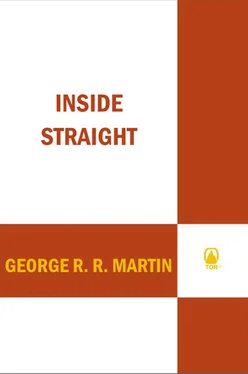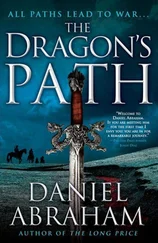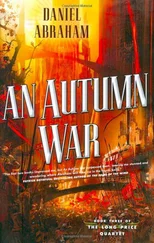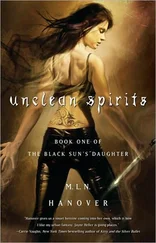Then he hears Peregrine say, “And the winner of American Hero is …” Jamal knows this will be dragged out, as if time weren’t already stretching. It is that endless moment between the football leaving the quarterback’s hand and its descent into the receiver’s—the hour it takes for a curveball to sail, spin, dive.…
Suddenly the studio explodes with sound—clapping, laughing, cheering.
He didn’t hear the name!
But Rosa Loteria has her arm around him. “Congratulations to you , Stuntman. You played the game just right.”
He won! Jamal Norwood, aka Stuntman, is the American Hero!
The others are around him now, hands thumping him on the back (it can’t really hurt, can it?), the women kissing him (even Jade). He only registers a strange, slick, smooth hug from Tiffani before he is with Peregrine at center stage. “Are you surprised?” she’s saying. The crowd is still making noise.
“Yeah.” Feeling more awkward in public than he has since fifth grade, he can only blurt the word. But he remembers being at the school earlier today, talking about being a hero—and he forms a speech that will dedicate this award to the aces lost in Egypt.
But before he can speak, he sees Berman flinging his arms around like a child of six in midtantrum. “What do you fucking mean ‘we’re not on the air’?”
The information strikes Peregrine at the same moment. Frozen smile on her face, still conscious of the cameras on her, she turns to Eryka, the production assistant. “Did I hear that? We’re not on the air?”
“Look,” Rosa says.
On the monitor showing the network feed, the American Hero finale is gone. In its place a middle-of-the-night scene in some European city—the hot, young South African reporter from NBC standing in front of some ornate building.
“What the hell is that?”
“The Hague,” Berman says. He reminds Jamal of a tire deflating.
“What’s the Hague?” Rosa asks.
“Home of the World Court.”
The reporter is saying, “… brought the strong man leader of Egypt, Kamal Farag Aziz, and his whole leadership, here to the Hague.…”
“Who brought them?” Jamal can’t see or hear.
“Your friends,” Berman says. “Our discards.”
“Michael, what are we doing?” Peregrine says. “Do we start over?” Berman shakes his head. “Well, fine,” she says, completely flustered. “This was going live to the East Coast. What about three hours from now?”
“You think that’s going to be over? Look at it!”
On the screen a group of men in chains, with CIA-style hoods, is being marched right to the front door of the Hague. Suddenly the camera finds John Fortune, grinning like…well, to Jamal, like Tom Cruise. Harrison Ford. Jack Nicholson. And there’s Lohengrin, Bugsy.
And Rustbelt , looking more sure of himself now than he ever did during American Hero.
They are the real heroes now.
Rosa turns to leave. “Where are you going?” Jamal asks her.
“Home, baby. Like everyone else.” She nods toward the audience. Those who aren’t staring at the screen, openmouthed in admiration and wonder, are jamming the aisles, talking on cell phones, clearly thinking only about the events at the Hague.
Jamal searches for his parents. They, too, are rising from their seats, shaking their heads. All this work! All this time! And he was ready, not just to accept the money, but to be the American Hero.
He will. It is the role of his lifetime.
But no one will care.
Daniel Abraham
Jonathan Hive
Give the wookie a medal
The Sri Lankan guy was short. He had a small frame and moustache that looked like an apology perched on his upper lip. His hair was close-cropped and thinning. Everyone else around the table was an ace—Fortune, Lohengrin, Drummer Boy, Curveball, Earth Witch, Holy Roller, Bubbles, Rustbelt, and of course Jonathan Hive himself. Ten people, only one of them a nat.
And yet, when United Nations Secretary-General Jayewardene spoke in his soft, thoughtful voice, it was his room. He owned it. He could have been an actor.
“The world, in its present condition, is not acceptable,” he said the way another man might have said we should paint the house. “You here are, I think, among the most aware of this fact. The injustices committed by Abdul the Idiot were outrageous and unacceptable, and I was as aware of them as each of you. Possibly more so. Like you, I tried to intervene. Unlike you, I failed.”
Jayewardene paused for a moment to let that sink in. Jonathan looked down at the table, suppressing a smile. It was hard not to be smug. Ever since they’d come to the Hague, they had been treated like celebrities, cheered and feted in a way that none of them had experienced since the first days of American Hero. Only it was different now. The half-hidden stares at restaurants, the strangers approaching them to ask for autographs or shake their hands. It all looked the same on the surface, but it felt different.
Because, Jonathan thought, this time it meant something. This time they maybe actually deserved it.
“The United Nations is, I firmly believe, a force of reform,” Jayewardene said. “The idea of universal human rights, of the dignity of life, and of the power of law and consensus cannot help but make the situation of the world community better. However, here, on my first assignment, I found myself playing the role of hostage.”
Jayewardene smiled gently and shrugged.
“I am not an ace,” he said. “I was, perhaps, overzealous. I have, however, learned from my error. I have been reminded that the organization I oversee is in essence powerless. I have been made to appear weak in the public eye, and appropriately so. I went to stop the genocide of Egypt, and the task was beyond me.”
Jayewardene’s gaze traveled around the table. Jonathan thought he knew what was coming.
“There are other atrocities in the world besides this one,” Jayewardene said. “There are dictators who traffic in slavery. There are governments who shelter terrorists and preach hatred. There are genocides. Many nations, even those that are members of the United Nations, ignore its decisions. And until now, my predecessors have relied upon the consensus of the governments of the world to take action. It has been a dull tool.”
“You said until now,” Fortune said, leaning forward. It was the important phrase. Jonathan noticed how much better Fortune was looking now that he and Sekhmet had agreed to let his body sleep from time to time.
Jayewardene smiled. Curveball and Earth Witch exchanged glances. Lohengrin’s chin was already sticking out about half a foot from his neck, and he was practically glowing with noble sentiment and pride. They all knew.
“I have called you all together to make a proposal,” Jayewardene said. “Through your actions, you have become symbols of something greater than yourselves. Men and women of the West and of the East, black and white, Arab and Christian and Jew, joining together to protect the defenseless.”
“Jew?” Jonathan said. “Who’s Jewish?”
Bubbles raised her hand. “My mother’s side,” she said. “They’re pretty secular, though.”
“Huh,” Jonathan said. “Well, who knew?”
“I would like you all to consider the good that you could still do,” Jayewardene said. “I have had a proposal drawn up for the creation of a special committee. The Committee on Extraordinary Interventions. It will function through my office, answering directly to the secretary general. And I wish to extend the invitation to each of you, in recognition of your service to humanity and to myself, to join as charter members.”
Читать дальше









